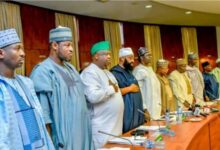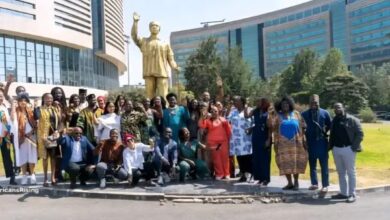Nigerians raise concern over none usage of indigenous languages
 Some Nigerians have expressed dissatisfaction about the dearth in the use of Nigerian indigenous languages, owing to the fact that some children hardly communicate in their mother tongue.
Some Nigerians have expressed dissatisfaction about the dearth in the use of Nigerian indigenous languages, owing to the fact that some children hardly communicate in their mother tongue.
A cross section of Nigerians expressed this view in separate interviews with the News Agency of Nigeria (NAN) in Abuja, saying that language is an important component of national identity and values.
Mrs Irene Maida, a mother of three, said that one of the reasons parents do not speak their indigenous languages to their children was due to inter-ethnic marriages.
“I got married to a man from Nasarawa State, we are both from different places so I only speak my native language to my siblings but not to my children.
“My husband doesn’t even understand his own language, so we adopted speaking the Hausa language, since we are in the North.
“At least let our children understand and speak one Nigerian language other than the English language,” Maida explained.
She, however, regretted the fact that her children do not understand her language.
“I feel bad that my children can’t speak my own language but at the same time I’m okay that they can speak Hausa language.
“They are even eager to learn the language but it doesn’t just flow because we didn’t start early since my husband doesn’t understand my language.
Similarly, Mr Albert Otu, a civil servant, said that he found it difficult to communicate with the family in his language due to language barrier between him and the wife.
“My wife is from the same local government area with me but we don’t understand each other’s language, as a result we always communicate in English language.
“Since we don’t understand each other’s native language, it makes it difficult for us to teach our children our language,” Otu said.
Mrs Zainab Garba-Adamu, a mother of five, said that some parents see the indigenous languages as outdated, hence would not want their children to be identified with it.
“Some parents feel they are now modernised, as a result see the indigenous languages as archaic.
“The indigenous languages are going into extinction because parents speak the English language to their children, instead of teaching them their mother tongue,” she said.
On why indigenous languages are important, Mr Haruna Idachaba, a father of three, said that one’s native language identifies him or her.
Idachaba urged parents to teach their children their languages, so that when they grow, they would grow to cherish and protect the language.
READ ALSO:https://brandeconomy.com.ng/collapse-building-lasg-orders-arrest-of-developer-construction-experts/
“I am proud of my language and I want my children to be identified with it.
“I communicate with my children in my language because I want them to understand it,’’ he said.
In her part, Mrs Cecilia Odoh, an educationist, said that children should be taught in their indigenous languages, saying it has a way of reviving and protecting the cultural values of the society.
“Many elderly people in the villages do not understand nor speak the English language; hence the need for children to be taught in their indigenous languages for proper integration into the society.
Mrs Liza Orakwe, another educator, said that not speaking the indigenous language to the children would endanger the language naturally.
Orakwe said that children who cannot speak nor understand their indigenous language would look out of place among their counterparts in the village, when they visit.
“We should not allow our indigenous languages to die; it links us to our roots,” she said.
(NAN)











